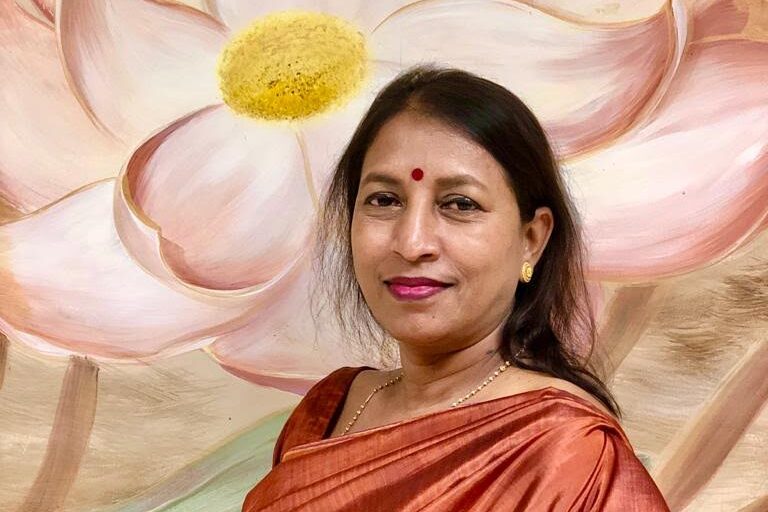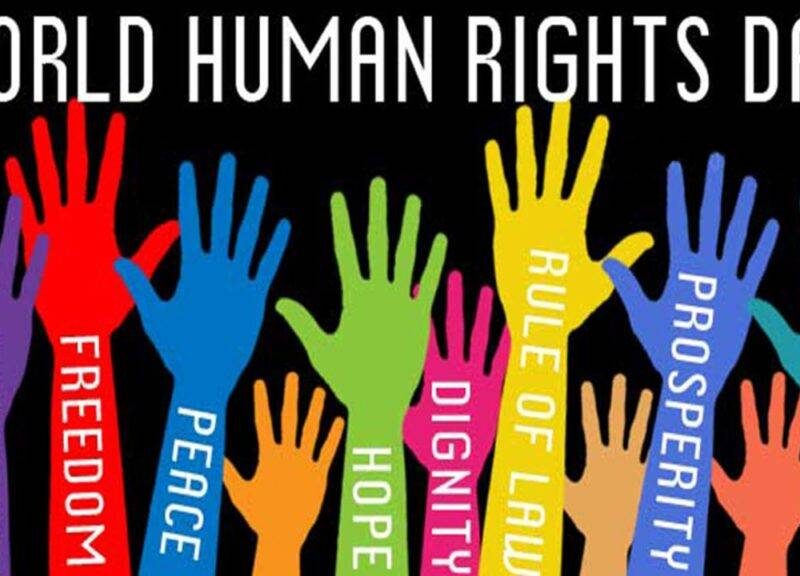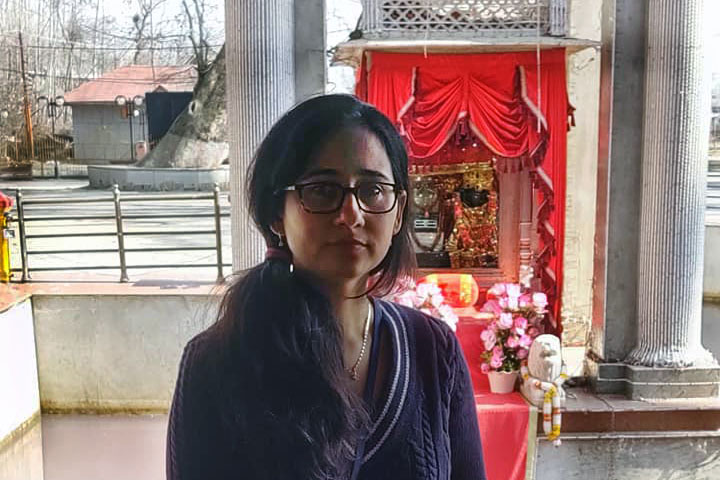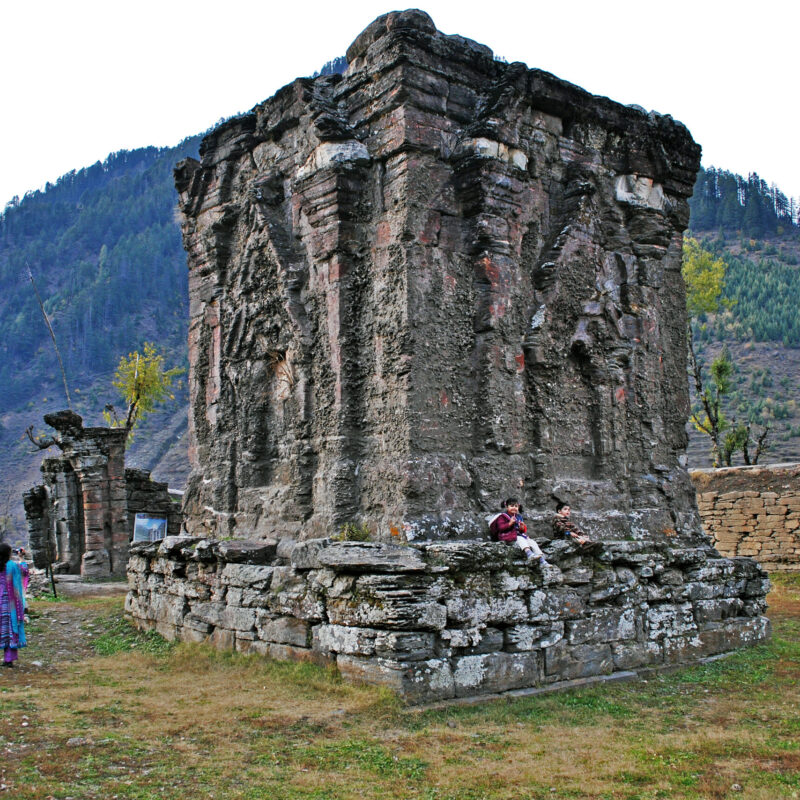
In many ways, Priya Saha had a happy childhood.
Born in a remote farm village in the Barisal District of what was at the time East Pakistan, she was raised in a tight-knit Hindu community of about 40 families. Though life was simple in the small village, there was plenty of fertile land — Saha’s family alone owned 355 acres — and a robust spiritual culture that included regular pujas, drama performances, and kirtans (sacred call and response singing). With pleasant memories of playing with her cousins, listening to the birds, and running along the banks of the local river, she remembers a village that was in want of nothing.
East Pakistan in the latter half of the 1960s, however, was plagued by rising tensions, the seeds of which had been planted about two decades earlier.
When the 1947 partition of British India divided the subcontinent into the independent nations of Muslim-majority Pakistan and Hindu-majority India, Pakistan was given two tracts of land that were separated by close to 1500 miles of Indian territory.
As most of the country’s ruling class emigrated westward from India, West Pakistan became the country’s political center. East Pakistan, on the other hand, with its 30 percent Hindu population, became, as the West Pakistan elites saw it, home to the nation’s cultural and ethnic underlings.
The people of East Pakistan, as a result, experienced a medley of political, economic, cultural, and linguistic repressions from these elites, one of which included an attempt to make the national language Urdu, even though less than 10 percent of East Pakistan’s population had practical knowledge of the language. Another involved the promulgation of the Enemy Property Act, a law that went into effect in 1965 when India and Pakistan fought a brief war. This Act allowed the government to confiscate the properties of Hindus who fled to India from East Pakistan during this time, declaring them to be enemies of the state.
Furthermore, between 1947 and 1970, though East Pakistan produced 59 percent of the country’s exports, it received just 30 percent of the country’s imports, which included oil, coal, machinery, and iron and steel — required commodities for what was, at the time, a highly underdeveloped country. During this time period, East Pakistan also received only 25 percent of Pakistan’s industrial investments.
An independence movement in East Pakistan gradually gained traction as a result of these repressions, calling for the region to become an autonomous and secular state, renamed Bangladesh.
Local Islamist organizations in East Pakistan, like Jamaat-e-Islami, however, did not want a divide in the Islamic community, and therefore opposed the disunion of East and West Pakistan.
So on March 25, 1971, after it had become clear an overwhelming majority of East Pakistan’s population desired autonomy, Jamaat-e-Islami, in conjunction with West Pakistani soldiers, launched Operation Searchlight — a massive campaign of killings, rapes, and destruction of properties against the citizens of East Pakistan that turned into one of the worst genocides in modern history. It also kicked off what came to be known as the Bangladesh Liberation War.
Villages, including Priya Saha’s, became the targets of terrible atrocities. Her once happy childhood pastimes dissipated and were replaced by violence and terror. Instead of joyfully running through the village everyday, she was now regularly hiding behind bushes to avoid brush fires from military gunboats. Killings, rapes, thefts, and the burning of homes by members of Jamaat-e-Islami became an everyday occurrence in her area.
Though the residents of Saha’s village endured for as long as they could, they were eventually warned one evening to leave that night or be killed by morning. So in May of 1971, a 6-year-old Saha and her family — along with every other family in the village — left and began walking to India. They were among 1.5 million mostly Hindu refugees who sought asylum in India just in that month.
A 14-day stretch of trekking through the rain, sleeping in paddy fields, and eating sparse meals, Saha’s family eventually reached a maternal aunt’s home in India. But because the aunt had limited space, Saha’s family left after almost three months and moved into a refugee camp situated on the playground of a high school in Murshidabad. During the seven months they lived at this camp, 18 of Saha’s extended family members died from the harsh conditions.
Tensions between Pakistan and India, all the while, were steadily rising, as the number of refugees who fled to India from East Pakistan rose to almost 10 million by November.
In early December, West Pakistan declared war on India, consequently ending its reign of terror in East Pakistan. India, however, forced West Pakistan into unconditional surrender by December 16. East Pakistan subsequently gained its official autonomy, becoming the independent nation of Bangladesh.
Though the death toll during the nine-month-long genocide in Bangladesh was 2 to 3 million, and an estimated 200,000 to 400,000 women were raped, the Liberation War was over. Saha and her family could finally return home.
But when they arrived, they discovered the entire village had been burned down. Nevertheless, they were excited to be out of the refugee camp and back on familiar lands. In good spirits, they began to rebuild, and for a while, life started to feel normal.
Not long after independence, however, Bangladesh’s commitment to secularism waned with the empowerment of radical Islamists. At first, things seemed to be moving in the right direction when the country’s first president, Sheikh Mujibur Rahman, illegalized political parties that used religion for political purposes, thereby ending Jamaat-e-Islami’s existence in Bangladesh. But in 1975 he was assassinated.
By 1979, the ban on religion-based political parties was lifted, and Jamaat-e-Islami resurfaced, along with the systematic repression of religious minorities, and large-scale violence against them.
Wanting to make a difference, Saha has since become a community leader and activist for minorities in Bangladesh. She founded a nonprofit advocating for Bangladeshi Dalits in the late 1990s, serving as its executive director for 22 years, counseling villagers who were raped, and protesting the oppressive tactics that have been implemented in her country. She has also held several leadership positions in other organizations committed to representing the minorities.
In July of 2019, she attended the Second Ministerial to Advance Religious Freedom in Washington, DC, where she told former president Donald Trump about how Muslim fundamentalists had taken control of her family’s land, and that minority communities in Bangladesh were in dire need of America’s assistance.
Saha has been unable to return to her country, and many of her family members have had to leave Bangladesh or go into hiding, in fear of various Islamist groups. Members of the Bangladesh government have criticized her publicly, going as far as filing over a dozen cases of sedition against her. She and members of her family have also been harassed and received numerous death threats. Saha said many of these groups exist in America, and she has thus had to frequently change her place of residence in order to remain hidden.
In spite of this, she is currently the executive director of the Human Rights Congress for Bangladesh Minorities, an advocacy organization dedicated to protecting the human rights of people in Bangladesh.
Her hope is for the Bangladesh government to reinstate secularism, return to Hindus all of the land that was taken from them (2.6 million acres in the last five decades, according to Abul Barkat’s book Deprivation of Hindu in Bangladesh: Living with Vested Property), and ultimately protect its minority communities. In order for this to happen, she believes major world powers, like the US and EU, which are among the largest importers of Bangladesh woven garments, must consider halting trade with the country if it doesn’t take better care of all of its citizens.
In other words, Saha said, the money of American citizens is being used to help fund continuing violence in Bangladesh. It’s her goal to make enough Americans aware of this issue, so that they will join her in speaking out against these atrocities and help Bangladesh return to its secular and pluralistic vision/birthright.








































